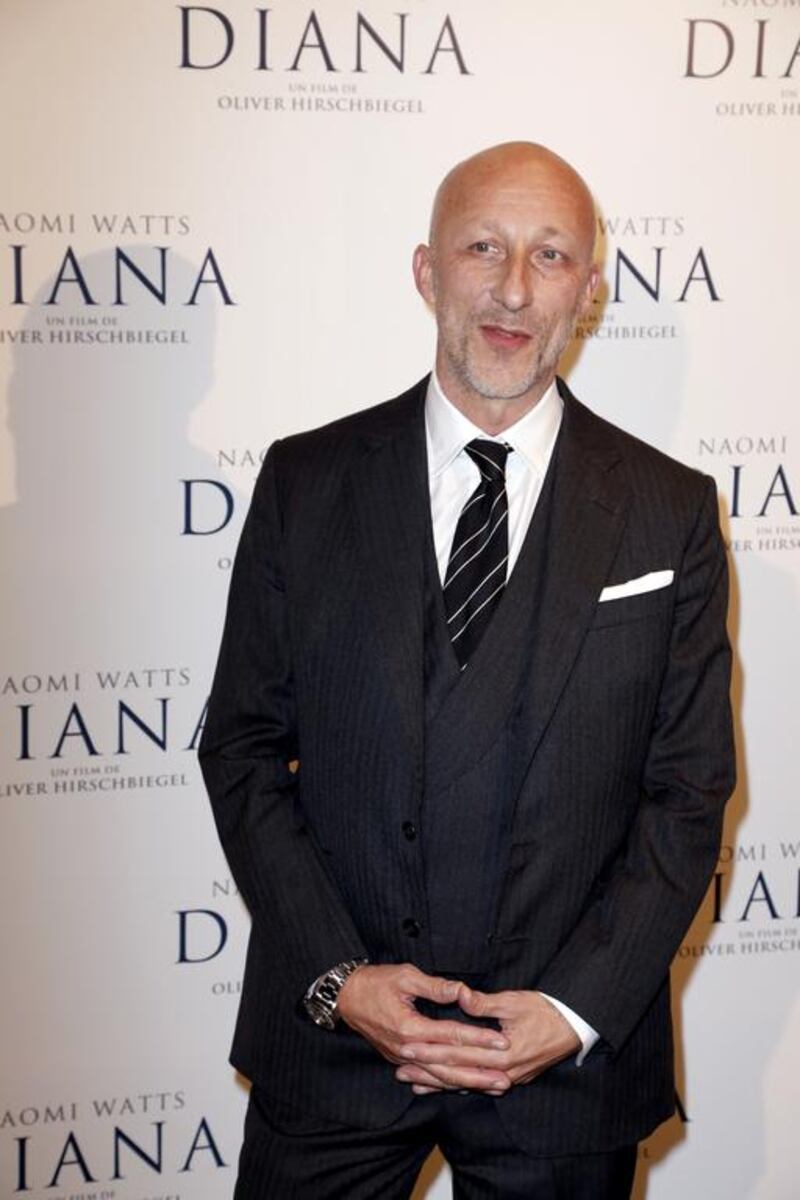British film critics lambasted Diana. Do you regret making it?
No. I had the same reactions with Downfall in Germany. It is a very un-British film, because I am a very German director. But the story is true and it raises questions, I think, about what made her so loved and rejected at the same time. I don’t know any person in the past 200 years that was treated like that or reacted to like Diana was. The story is not over, if you know what I mean.
Were you disappointed by the Pakistani surgeon Hasnat Khan’s refusal to talk to you?
I never wanted to speak to him, because the minute you meet the real people you become emotionally involved on a personal level, which alters your vision. I wouldn’t trust myself anymore – and that is a bad thing for a storyteller.
But were you surprised when he stated publicly that he wouldn’t watch the film because it is based, in his opinion, on gossip?
I was a bit surprised because neither he, nor the family, and not even the Fayeds objected to anything that was written in the book [Her Last Love] by Kate Snell. What can I say? I know it is an awkward situation for him.
You’ve said Diana was more complex than Hitler.
Once you’ve got through Hitler’s shell, which is interesting and fascinating, there is nothing. There is no vision. There is no brilliance. He has one thing in common with Diana, which is he was a born actor. And actors radiate a certain kind of energy that makes you follow them and like them and find them interesting.
Was Diana like Marilyn Monroe, where Monroe turned “Marilyn” on and off?
Yeah, Marilyn is a great example because she’s remembered as being this naive chick with blond hair. But Marilyn was a brilliant mind and, if you read what Truman Capote wrote about her, totally misinwterpreted and misunderstood. Funnily enough, Diana was very fond of Marilyn. She was one of her heroes.
Was there any pressure from any side to leave something out?
I think that the most pressure I put on myself. Because at a certain point the question was, “Do I have the sons in there or not?” If I’d put them in I would have got into a situation that was rather nasty because we know that things happened prior to the Panorama interview and there were photos of William being totally upset and storming away. Probably some of the English press would have liked to see that depicted but I felt like these boys are alive and this film is not really about that; it’s about her finally finding love.
So you decided to omit them?
I wasn’t going to comment on how she really dealt with her sons because I know she loved them dearly, deeply, and taught them things that they live by now. So who am I to do that?
You also don’t include the letter she wrote 11 months before her death, and therefore during the period of the film, in which she expressed her fear that someone would try to kill her by tampering with her car.
The minute you put that in as a storyteller you lose the audience, because she’s just a mad cow. I didn’t want to make a film about a mad cow. Diana is about this love that gets her to reinvent herself and become something much bigger than she would ever have imagined before. That’s part of the tragedy. If she hadn’t died, if she had succeeded with like what she had done with the landmine campaign, she could have done so much. That’s these two years that I wanted to depict and the key to all that is love, as pathetic as it may sound.
A former British soldier has claimed she was killed by the SAS. What do you think?
I find it all rather doubtful, the motive of the establishment wanting to get rid of Diana. That would mean that they consciously found her a threat when it came to the attitude and manners, and that is stupid. For material reasons, anytime.
• Diana is out now in UAE cinemas
[ artslife@ thenational.ae ]





